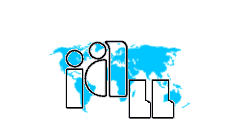Article Title
Management of Ethno-Cultural Diversity in Turkey: Europeanization of Domestic Politics and New Challenges
Abstract
Turkey has gone through an enormous process of change in the last decade, especially regarding he political recognition of ethno-cultural and religiously diverse groups. The term “diversity” has become one of the catch words of contemporary political philosophy. Diversity, in its recent forms, whether cultural, political, ethnic, or religious, is a byproduct of globalization. Globalization has made the movements of persons or groups in the ethnoscape easier. It is apparent that the management of diversity has posed a great challenge for nation states as well as for the international and supranational organizations such as the United Nations and the European Union (EU).
This paper touches upon the management of ethnic diversity in both national and supranational levels, with particular reference to Turkey and the EU. The thesis makes a distinction between “diversity as a phenomenon” and “diversity as a discourse/ideology” in the Turkish context. The paper claims that the state and various ethnic groups in Turkey have been inclined to employ the “diversity as a discourse/ideology” in the aftermath of the EU Helsinki Summit of 1999, in compliance with the prevailing discourse of “unity in diversity” within the EU circles.
Recommended Citation
Kaya, Ayhan
(2010)
"Management of Ethno-Cultural Diversity in Turkey: Europeanization of Domestic Politics and New Challenges,"
International Journal of Legal Information: Vol. 38:
Iss.
2, Article 13.
Available at:
https://scholarship.law.cornell.edu/ijli/vol38/iss2/13
